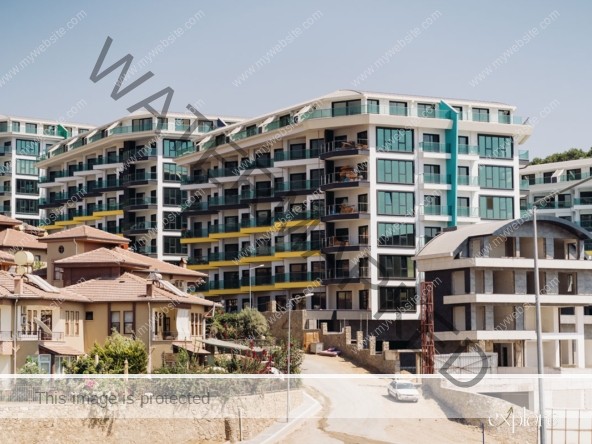Finding your dream property in Malaysia can be an exciting journey filled with opportunities. Malaysia’s real estate market is diverse, offering everything from luxurious condominiums in bustling cities to serene bungalows in tranquil suburbs. This article will guide you through the essential steps to consider when searching for your ideal home, along with insights into the local market, legal requirements, and tips for a smooth purchasing process.
Understanding the Malaysian Real Estate
Malaysia boasts a well-developed real estate sector, making it relatively straightforward for both locals and foreigners to buy property. The market is characterized by a variety of property types, including:
- Condominiums: Typically located in urban areas, these properties come with shared amenities such as swimming pools, gyms, and security services.
- Flats: More basic than condominiums, flats usually lack the additional facilities found in condominiums.
- Bungalows: These are detached homes that can vary in size and number of stories, often found in suburban areas.
- Landed Properties: These include houses with land, offering more privacy and space compared to high-rise living.
The Benefits of Buying Property in Malaysia
- Affordability: Compared to many Western countries, property prices in Malaysia are relatively affordable, making it an attractive option for first-time buyers and investors.
- Locations: From the vibrant capital city of Kuala Lumpur to the serene beaches of Langkawi, Malaysia offers a wide range of environments to suit different lifestyles.
- Investment Potential: Malaysia’s growing economy and tourism sector make real estate a potentially lucrative investment.
- MM2H Program: The Malaysia My Second Home (MM2H) program allows foreigners to purchase property with certain benefits, including lower price caps and easier financing options.
Malaysia Property
Steps to Find Your Dream Property
1. Define Your Requirements
Before starting your search, it’s crucial to outline your needs and preferences. Consider factors such as:
- Budget: Determine how much you can afford, including additional costs like taxes and maintenance fees.
- Location: Decide whether you prefer urban living, suburban tranquility, or a rural setting.
- Property Type: Choose between a condominium, flat, bungalow, or landed property based on your lifestyle.
2. Research the Market
Familiarize yourself with the local real estate market. Websites like PropertyGuru and MET Property provide comprehensive listings and insights into property prices and trends.
- PropertyGuru: Known as the largest property website in Malaysia, it offers a wide array of listings and is a trusted resource for home seekers.
- MET Property: Focuses on properties in Kuala Lumpur and Selangor, highlighting investment opportunities and market statistics.


3. Engage a Local Real Estate Agent
While it is possible to navigate the market independently, enlisting the help of a local real estate agent can provide valuable insights and simplify the process. Agents can help with:
- Market Knowledge: They understand local trends and can guide you to the best neighborhoods.
- Negotiation: Experienced agents can negotiate better deals on your behalf.
- Legal Assistance: They can assist with the legalities of purchasing property, ensuring compliance with local regulations.
4. Visit Properties
Once you’ve narrowed down your options, schedule visits to potential properties. Pay attention to:
- Condition of the Property: Look for any necessary repairs or renovations.
- Surrounding Amenities: Consider proximity to schools, hospitals, shopping centers, and public transport.
- Community Vibe: Assess whether the neighborhood aligns with your lifestyle preferences.


5. Conduct Due Diligence
Before making an offer, conduct thorough due diligence. This includes:
- Property Survey: Although not legally required, a survey can uncover hidden issues that may affect your purchase.
- Legal Checks: Verify the property’s title and ensure there are no outstanding debts or legal disputes.
- Financial Assessment: If you plan to finance your purchase, consult with banks to understand your mortgage options and requirements.
6. Make an Offer
Once you find a property that meets your criteria, make a formal offer. This typically involves:
- Letter of Offer: Submit a letter outlining your offer price and terms.
- Deposit: Be prepared to pay a deposit, usually around 2-3% of the purchase price, which is typically held in trust until the sale is finalized.


7. Closing the Deal
After your offer is accepted, the closing process begins. This includes:
- Sales and Purchase Agreement (SPA): Review and sign the SPA, which outlines the terms of the sale.
- Final Payment: Pay the remaining balance, along with any applicable taxes and fees.
- Transfer of Ownership: Once payment is completed, the property title will be transferred to your name.
Legal Considerations for Foreign Buyers
Foreigners can purchase property in Malaysia, but there are specific regulations to be aware of:
- Minimum Purchase Price: Foreign buyers are typically required to purchase properties above a certain price threshold, which varies by state.
- Financing Options: While some banks offer mortgage financing to foreigners, the terms may differ from those available to Malaysian citizens.
- Legal Representation: It is advisable to hire a lawyer who specializes in property transactions to navigate the legal complexities.
Finding your dream property in Malaysia is an achievable goal with the right preparation and guidance. By understanding the local market, defining your needs, and engaging the right professionals, you can navigate the process smoothly. Whether you’re looking for a vibrant urban lifestyle or a peaceful retreat, Malaysia’s diverse real estate offerings cater to a wide range of preferences and budgets. Start your journey today and discover the perfect home that aligns with your aspirations.





